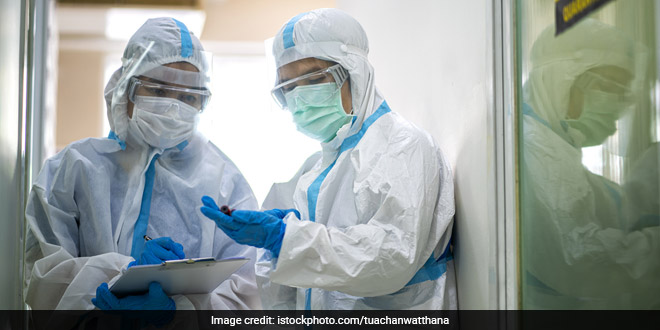Highlights
- First sero-prevalence, done from June 27-July 10 by the Delhi government
- Result of survey done in August showed 29.1 per cent people had antibodies
- The pandemic situation in the city is now under control: Delhi Government
New Delhi: The outcome of the fifth round of sero-prevalence survey in the national capital has indicated that Delhi population could be heading towards attaining herd immunity against coronavirus infection, sources said on Monday (January 25). The survey has found that in one district, 50-60 per cent of the sampled population has developed antibodies to COVID-19, they said. For the survey, which ended a few days ago, samples of over 25,000 people from various districts across the city were collected, the officials said.
Also Read: Home Health Care Services On Rise Due To COVID-19 Pandemic: Experts
Delhi’s population is over two crore, spread across 11 districts.
In one district, the sero-prevalence rate is between 50-60 per cent, indicating a large number of people have developed antibodies, so we can say the city is moving towards attaining herd immunity, a source said without disclosing the name of the district.
Experts say herd immunity is said to have been developed in a population segment if 50-60 per cent of those are found to have the presence of antibodies in a sero-prevalence survey. Herd immunity implies that in any set of people in a community, after becoming affected by the virus, a lot many of them become immune to it, on account of antibodies developed in response to it.
And, hence, such people become a protective layer between the infected person and unaffected people, thereby breaking the chain of viral transmission. This is the fifth such exercise that was conducted here, but the Delhi government has not given any official version on it.
The first sero-prevalence, done from June 27-July 10 by the Delhi government in association with the National Centre for Disease Control (NCDC), had used 21,387 samples and found that around 23 per cent of the people surveyed had an exposure to the novel coronavirus.
Also Read: Immune System Of Recovered COVID-19 Patients May Evolve To Fight Coronavirus Variants: Study
The exercise in August showed 29.1 per cent people had antibodies. Also, 79 of 257 people who had tested COVID-19 positive and then recovered, and were part of the sero-prevalence survey done in the first week of August, however, did not have the antibodies against the virus, according to a report released later.
In the survey in September and October, the figures stood at 25.1 per cent and 25.5 per cent in October. The exercises were undertaken for a comprehensive assessment of the COVID-19 situation in Delhi and to formulate strategies based on its findings. Delhi recorded 185 fresh COVID-19 cases on Sunday, the third time the daily incidence count stood below the 200-mark in January, even as the positivity was recorded at 0.30 per cent. Health Minister Satyendar Jain recently said the pandemic situation in the city is now under control. The infection tally in the city stood at over 6.33 lakh and the death toll mounted to 10,808 with nine new fatalities on Sunday.
Also Read: ASHA, India’s Female Health Workers On Rural Front Line Get COVID-19 Shot In The First Phase
(Except for the headline, this story has not been edited by NDTV staff and is published from a syndicated feed.)
NDTV – Dettol Banega Swasth India campaign is an extension of the five-year-old Banega Swachh India initiative helmed by Campaign Ambassador Amitabh Bachchan. It aims to spread awareness about critical health issues facing the country. In wake of the current COVID-19 pandemic, the need for WASH (Water, Sanitation and Hygiene) is reaffirmed as handwashing is one of the ways to prevent Coronavirus infection and other diseases. The campaign highlights the importance of nutrition and healthcare for women and children to prevent maternal and child mortality, fight malnutrition, stunting, wasting, anaemia and disease prevention through vaccines. Importance of programmes like Public Distribution System (PDS), Mid-day Meal Scheme, POSHAN Abhiyan and the role of Aganwadis and ASHA workers are also covered. Only a Swachh or clean India where toilets are used and open defecation free (ODF) status achieved as part of the Swachh Bharat Abhiyan launched by Prime Minister Narendra Modi in 2014, can eradicate diseases like diahorrea and become a Swasth or healthy India. The campaign will continue to cover issues like air pollution, waste management, plastic ban, manual scavenging and sanitation workers and menstrual hygiene.
[corona_data_new]




















Crytonic
January 26, 2021 at 7:42 pm
Good information , let’s see
we have to be together for this .
https://crytonic.com/